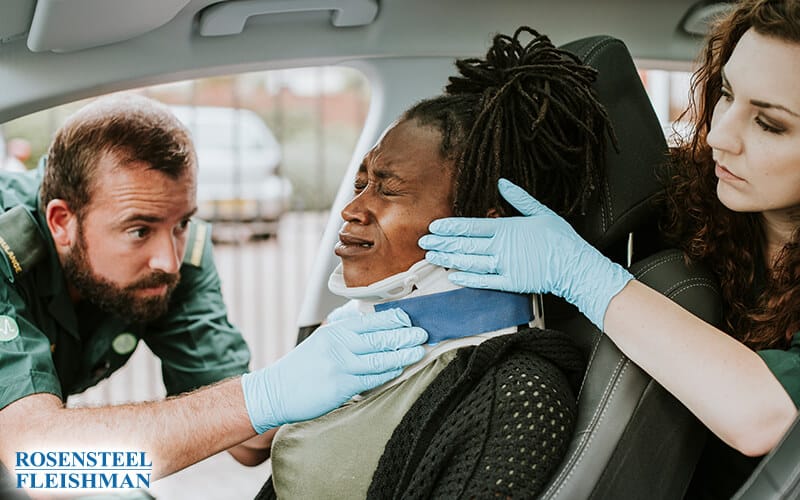The Unseen Dangers of Modern Transportation
Rideshare services like Uber and Lyft have revolutionized urban mobility, offering unparalleled convenience at the tap of an app. Millions now rely on these platforms for daily commutes, airport runs, and late-night excursions. Yet, beneath the veneer of seamless travel lies a complex, often perilous, landscape for passengers when accidents occur. The familiar scenario – you’re a passenger, perhaps checking your phone, when suddenly a jarring impact throws your world into chaos – is becoming all too common. What happens next, and critically, who is truly responsible for your well-being?
The Illusion of Simplicity
For many, the appeal of ridesharing is its simplicity: request, ride, arrive. The intricate legal and insurance frameworks governing these services remain largely opaque to the average user. Unlike traditional taxi services, rideshare companies often classify their drivers as independent contractors, a distinction that has profound implications for liability after a crash. This fundamental difference creates a challenging environment for injured passengers seeking compensation for medical bills, lost wages, and pain and suffering.
“Passengers often assume they are fully protected by Uber or Lyft’s insurance, but the reality is a multi-layered, often frustrating, battle between personal policies, commercial coverages, and legal interpretations that can leave victims feeling abandoned.”
When Convenience Collides with Catastrophe: Your Rights After a Rideshare Accident
In the immediate aftermath of a collision, the priorities are always safety and medical attention. However, once the initial shock subsides, a daunting array of questions emerges. Who pays for the ambulance? The emergency room visit? The weeks of physical therapy? What about the income lost from time off work? Navigating these waters alone can be overwhelming, especially when dealing with injuries.
- Immediate Medical Care: Always prioritize your health. Seek medical attention, even if you feel fine initially, as some injuries manifest later.
- Document Everything: Gather as much information as possible: photos of the scene, vehicles, and injuries; driver’s and other parties’ insurance information; contact details of witnesses.
- Report the Accident: Inform both the police and the rideshare company (Uber/Lyft) about the incident.
- Avoid Recorded Statements: Do not give recorded statements to insurance adjusters without consulting an attorney. These can be used against you.
The Legal Labyrinth: Unraveling Liability in Rideshare Crashes
Determining liability in a rideshare accident is rarely straightforward. Unlike a standard two-car collision where fault might be clearly assigned between two private drivers, rideshare incidents introduce additional layers of complexity:
The Driver’s Personal Insurance
Every rideshare driver is required to carry personal auto insurance. However, most personal policies explicitly exclude coverage for accidents that occur when the vehicle is being used for commercial purposes. This means that once a driver is logged into the app, their personal policy may deny coverage.
Rideshare Company Commercial Insurance
Uber and Lyft carry substantial commercial insurance policies (often $1 million or more) to cover accidents. However, the activation of these policies depends critically on the driver’s ‘status’ at the time of the crash:
- App Off: Driver is not logged in; personal insurance applies.
- App On, Awaiting Request: A lower level of contingent liability coverage typically applies (e.g., $50,000/$100,000 bodily injury, $25,000 property damage).
- En Route to Pick Up Passenger or During a Trip: The full $1 million commercial liability coverage is generally active.
These distinctions are crucial and often contested by insurance companies, making the claims process a bureaucratic nightmare for injured passengers.
The Critical Role of an Experienced Rideshare Accident Lawyer
This is where specialized legal expertise becomes indispensable. An attorney well-versed in rideshare accident litigation understands the nuances of these complex insurance policies and the legal precedents surrounding ‘gig economy’ liability. They can:
- Conduct a thorough investigation, gathering critical evidence.
- Identify all potential sources of recovery, including the rideshare company, the driver, and any other at-fault parties.
- Negotiate with aggressive insurance adjusters who often aim to minimize payouts.
- Advocate for you in court if a fair settlement cannot be reached.
Whether you’re in Massachusetts, Connecticut, or any other state, the principles of personal injury law apply, but the application to rideshare services demands a specific understanding of their operational and legal models. Protecting your rights and securing the compensation you deserve in the aftermath of a rideshare crash isn’t just about legal knowledge; it’s about having a relentless advocate in your corner against powerful corporations and their legal teams. The fight for justice in a rideshare accident demands expert navigation through a constantly evolving legal landscape.


